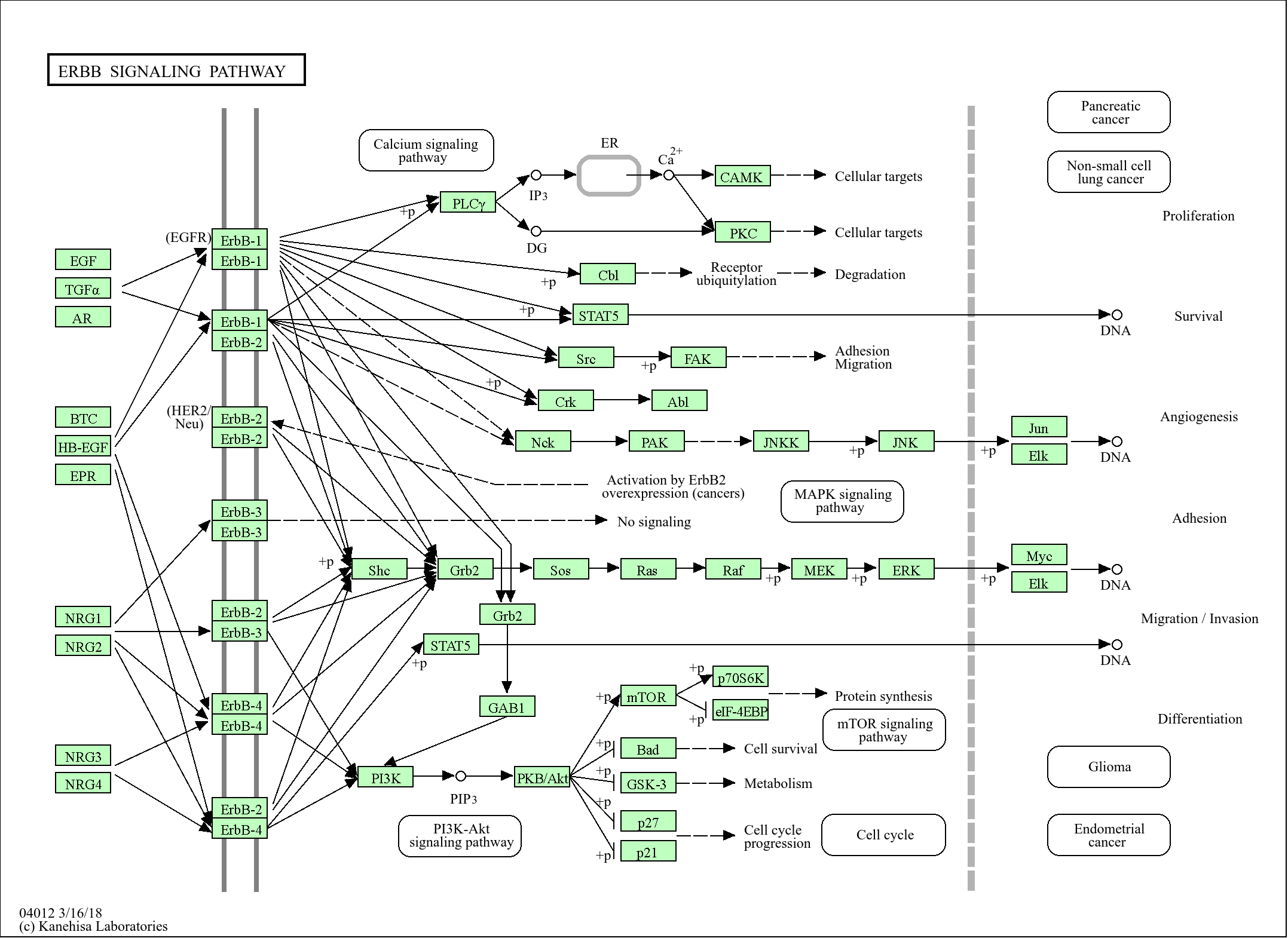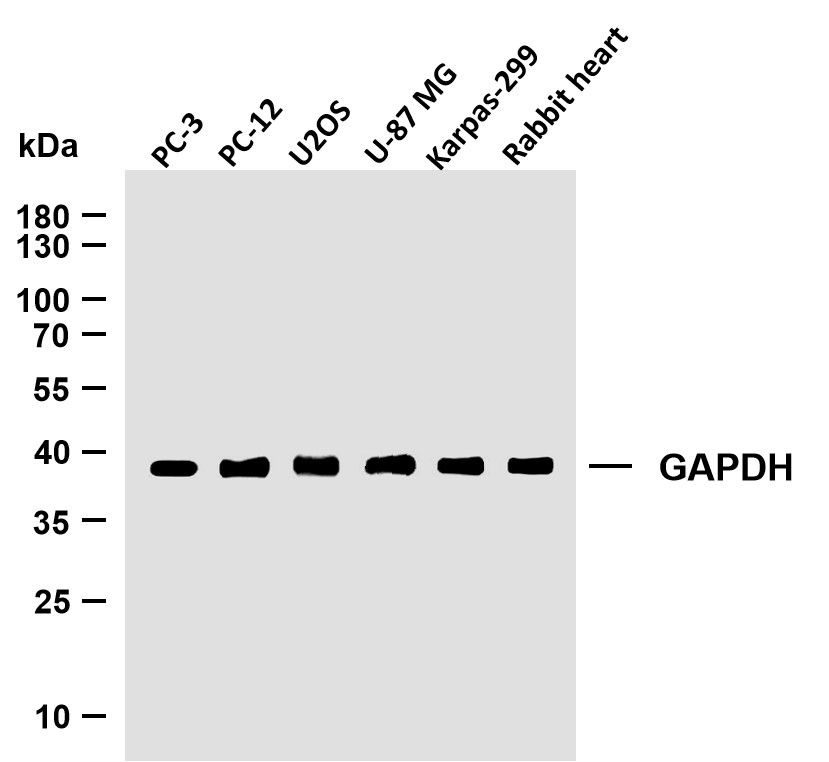
Catalog: YP0467
Size
Price
Status
Qty.
200μL
$600.00
In stock
0
100μL
$340.00
In stock
0
50μL
$190.00
In stock
0
Add to cart


Collected


Collect
Main Information
Target
Cyclin D2
Host Species
Rabbit
Reactivity
Human, Mouse, Rat
Applications
WB, IHC, IF, ELISA
MW
40kD (Observed)
Conjugate/Modification
Phospho
Detailed Information
Recommended Dilution Ratio
WB 1:500-1:2000; IHC 1:100-1:300; ELISA 1:10000; IF 1:50-200
Formulation
Liquid in PBS containing 50% glycerol, 0.5% BSA and 0.02% sodium azide.
Specificity
Phospho-Cyclin D2 (T280) Polyclonal Antibody detects endogenous levels of Cyclin D2 protein only when phosphorylated at T280.The name of modified sites may be influenced by many factors, such as species (the modified site was not originally found in human samples) and the change of protein sequence (the previous protein sequence is incomplete, and the protein sequence may be prolonged with the development of protein sequencing technology). When naming, we will use the "numbers" in historical reference to keep the sites consistent with the reports. The antibody binds to the following modification sequence (lowercase letters are modification sites):AStPT
Purification
The antibody was affinity-purified from rabbit antiserum by affinity-chromatography using epitope-specific immunogen.
Storage
-15°C to -25°C/1 year(Do not lower than -25°C)
Concentration
1 mg/ml
MW(Observed)
40kD
Modification
Phospho
Clonality
Polyclonal
Isotype
IgG
Related Products
Antigen&Target Information
Immunogen:
The antiserum was produced against synthesized peptide derived from human Cyclin D2 around the phosphorylation site of Thr280. AA range:240-289
show all
Specificity:
Phospho-Cyclin D2 (T280) Polyclonal Antibody detects endogenous levels of Cyclin D2 protein only when phosphorylated at T280.The name of modified sites may be influenced by many factors, such as species (the modified site was not originally found in human samples) and the change of protein sequence (the previous protein sequence is incomplete, and the protein sequence may be prolonged with the development of protein sequencing technology). When naming, we will use the "numbers" in historical reference to keep the sites consistent with the reports. The antibody binds to the following modification sequence (lowercase letters are modification sites):AStPT
show all
Gene Name:
CCND2
show all
Protein Name:
G1/S-specific cyclin-D2
show all
Other Name:
CCND2 ;
G1/S-specific cyclin-D2
G1/S-specific cyclin-D2
show all
Database Link:
Background:
The protein encoded by this gene belongs to the highly conserved cyclin family, whose members are characterized by a dramatic periodicity in protein abundance through the cell cycle. Cyclins function as regulators of CDK kinases. Different cyclins exhibit distinct expression and degradation patterns which contribute to the temporal coordination of each mitotic event. This cyclin forms a complex with CDK4 or CDK6 and functions as a regulatory subunit of the complex, whose activity is required for cell cycle G1/S transition. This protein has been shown to interact with and be involved in the phosphorylation of tumor suppressor protein Rb. Knockout studies of the homologous gene in mouse suggest the essential roles of this gene in ovarian granulosa and germ cell proliferation. High level expression of this gene was observed in ovarian and testicular tumors. Mutations in this gene are associated with megalencep
show all
Function:
Function:Essential for the control of the cell cycle at the G1/S (start) transition.,similarity:Belongs to the cyclin family.,similarity:Belongs to the cyclin family. Cyclin D subfamily.,subunit:Interacts with the CDK4 and CDK6 protein kinases to form a serine/threonine kinase holoenzyme complex. The cyclin subunit imparts substrate specificity to the complex.,
show all
Cellular Localization:
Nucleus . Cytoplasm . Nucleus membrane . Cyclin D-CDK4 complexes accumulate at the nuclear membrane and are then translocated into the nucleus through interaction with KIP/CIP family members. .; [Isoform 2]: Cytoplasm .
show all
Tissue Expression:
Bone marrow,Heart,Placenta,Uterus,
show all
Research Areas:
>>FoxO signaling pathway ;
>>Cell cycle ;
>>p53 signaling pathway ;
>>PI3K-Akt signaling pathway ;
>>Cellular senescence ;
>>Wnt signaling pathway ;
>>Hedgehog signaling pathway ;
>>Hippo signaling pathway ;
>>Focal adhesion ;
>>JAK-STAT signaling pathway ;
>>Prolactin signaling pathway ;
>>Measles ;
>>Human papillomavirus infection ;
>>Human T-cell leukemia virus 1 infection ;
>>Epstein-Barr virus infection ;
>>Pathways in cancer ;
>>Transcriptional misregulation in cancer ;
>>Viral carcinogenesis ;
>>MicroRNAs in cancer
>>Cell cycle ;
>>p53 signaling pathway ;
>>PI3K-Akt signaling pathway ;
>>Cellular senescence ;
>>Wnt signaling pathway ;
>>Hedgehog signaling pathway ;
>>Hippo signaling pathway ;
>>Focal adhesion ;
>>JAK-STAT signaling pathway ;
>>Prolactin signaling pathway ;
>>Measles ;
>>Human papillomavirus infection ;
>>Human T-cell leukemia virus 1 infection ;
>>Epstein-Barr virus infection ;
>>Pathways in cancer ;
>>Transcriptional misregulation in cancer ;
>>Viral carcinogenesis ;
>>MicroRNAs in cancer
show all
Signaling Pathway
Cellular Processes >> Cell growth and death >> Cell cycle
Cellular Processes >> Cell growth and death >> p53 signaling pathway
Cellular Processes >> Cell growth and death >> Cellular senescence
Cellular Processes >> Cellular community - eukaryotes >> Focal adhesion
Organismal Systems >> Endocrine system >> Prolactin signaling pathway
Human Diseases >> Cancer: overview >> Pathways in cancer
Human Diseases >> Cancer: overview >> Transcriptional misregulation in cancer
Human Diseases >> Cancer: overview >> MicroRNAs in cancer
Environmental Information Processing >> Signal transduction >> Wnt signaling pathway
Environmental Information Processing >> Signal transduction >> Hedgehog signaling pathway
Environmental Information Processing >> Signal transduction >> Hippo signaling pathway
Environmental Information Processing >> Signal transduction >> JAK-STAT signaling pathway
Environmental Information Processing >> Signal transduction >> FoxO signaling pathway
Environmental Information Processing >> Signal transduction >> PI3K-Akt signaling pathway
Reference Citation({{totalcount}})
Catalog: YP0467
Size
Price
Status
Qty.
200μL
$600.00
In stock
0
100μL
$340.00
In stock
0
50μL
$190.00
In stock
0
Add to cart


Collected


Collect
Recently Viewed Products
Clear allPRODUCTS
CUSTOMIZED
ABOUT US
Toggle night Mode
{{pinfoXq.title || ''}}
Catalog: {{pinfoXq.catalog || ''}}
Filter:
All
{{item.name}}
{{pinfo.title}}
-{{pinfo.catalog}}
Main Information
Target
{{pinfo.target}}
Reactivity
{{pinfo.react}}
Applications
{{pinfo.applicat}}
Conjugate/Modification
{{pinfo.coupling}}/{{pinfo.modific}}
MW (kDa)
{{pinfo.mwcalc}}
Host Species
{{pinfo.hostspec}}
Isotype
{{pinfo.isotype}}
Product {{index}}/{{pcount}}
Prev
Next
{{pvTitle}}
Scroll wheel zooms the picture
{{pvDescr}}



















